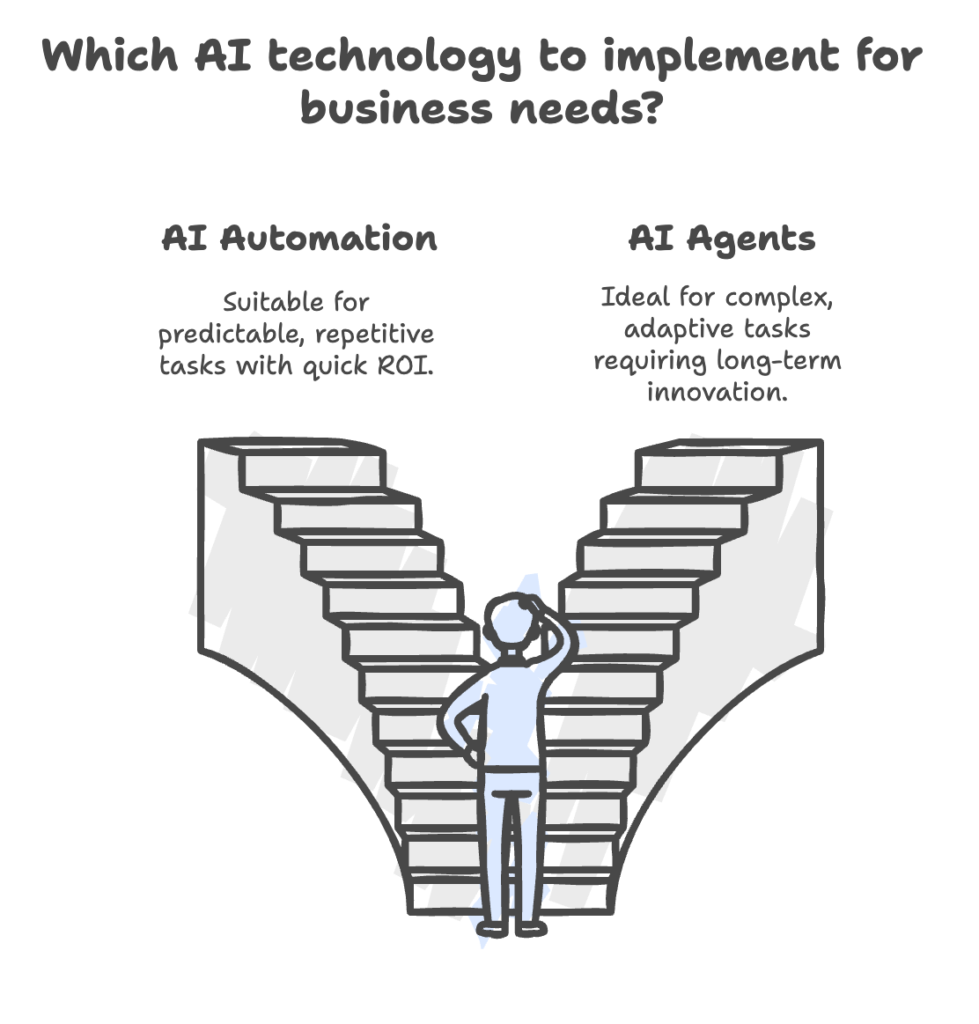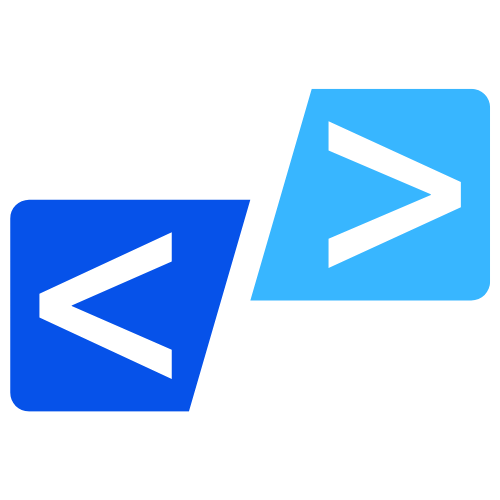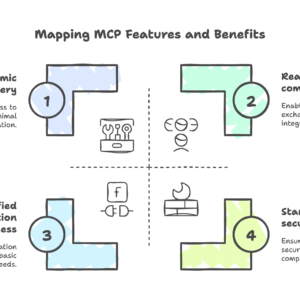
Artificial intelligence (AI) is revolutionizing industries, but not all AI systems are created equal. Two prominent approaches; AI automation and AI agents, are reshaping workflows and decision-making processes. While they share the goal of enhancing efficiency, their underlying mechanisms, applications, and benefits differ significantly. This blog post explores these differences and helps you determine which approach best suits your needs.
What Are AI Automation and AI Agents?
AI Automation
AI automation refers to systems that follow predefined rules to perform repetitive tasks efficiently. These systems rely on structured workflows and rule-based logic, making them simpler to implement. They excel in scenarios where tasks are predictable and can be streamlined through automation.
AI Agents
AI agents, on the other hand, are autonomous entities capable of learning, adapting, and making decisions in real time. Powered by advanced machine learning or deep learning algorithms, they tackle complex problems by analyzing broader, often unstructured datasets. Unlike AI automation, AI agents evolve continuously as they interact with their environment and receive new data inputs.
Key Differences Between AI Automation and AI Agents
| Aspect | AI Automation | AI Agents |
|---|---|---|
| Definition | Systems that follow predefined rules for repetitive tasks | Autonomous entities capable of learning, adapting, and making decisions in real time |
| Complexity | Simpler to implement with rule-based logic and pre-set workflows | Relies on advanced machine learning or deep learning algorithms to tackle complex problems |
| Data Needs | Structured, rule-based data sources | Broader, often unstructured datasets for training and adaptation |
| Use Cases | Automated email marketing, lead scoring, data cleansing, routine pipeline updates | Conversational chatbots, predictive forecasting, dynamic personalization in campaigns |
| Scalability | Easier to expand once processes are defined | More resource-intensive as learning models evolve and expand |
| ROI Timeline | Quick returns due to rapid deployment and efficiency gains | Longer-term returns through deeper personalization, innovation, and improved decision-making |
Applications in Real-World Scenarios
Where AI Automation Shines:
AI automation is ideal for repetitive tasks that require minimal variability. Some common use cases include:
- Email Marketing: Automating email campaigns for lead nurturing or customer engagement.
- Data Cleansing: Streamlining data preparation for analytics or reporting purposes.
- Pipeline Updates: Automating routine updates in sales or operational pipelines.
These systems deliver quick returns by reducing manual effort and improving process efficiency.
Where AI Agents Excel:
AI agents thrive in dynamic environments requiring adaptability and intelligence. Examples include:
- Conversational Chatbots: Engaging customers with personalized responses based on real-time context.
- Predictive Forecasting: Analyzing historical data to predict trends in sales or inventory management.
- Dynamic Personalization: Tailoring marketing campaigns to individual user preferences using behavioral insights.
While resource-intensive during setup, AI agents provide long-term value by driving innovation and improving decision-making capabilities.
Scalability and ROI: A Strategic Perspective
Scalability
- AI Automation: Expands easily once processes are defined; requires minimal ongoing adjustments.
- AI Agents: More challenging to scale due to the need for continuous learning model updates and computational resources.
ROI Timeline
- AI Automation: Offers quick returns thanks to rapid deployment and immediate efficiency gains.
- AI Agents: Generates longer-term returns through deeper personalization, innovation, and strategic insights that improve business outcomes over time.
Choosing Between AI Automation and AI Agents
The choice between AI automation and AI agents depends on your business needs:
- If your focus is on streamlining repetitive tasks with immediate ROI, opt for AI automation systems.
- If you need intelligent systems capable of adapting to complex scenarios or delivering personalized experiences, invest in AI agents.
Conclusion: The Future of AI Integration
Both AI automation and AI agents are critical components of modern business operations. While automation simplifies repetitive workflows for quick wins, agents enable businesses to tackle complex challenges with adaptive intelligence. As organizations increasingly adopt AI-driven solutions, understanding these distinctions will be key to maximizing their impact.
Whether you’re automating processes or deploying intelligent agents for strategic insights, the future of work is undeniably powered by artificial intelligence!




Artificial intelligence is truly transforming the way industries operate, offering both efficiency and innovation. It’s fascinating how AI automation simplifies repetitive tasks, while AI agents bring adaptability to complex problems. The comparison between the two approaches provides valuable insights for businesses to make informed decisions. As technology evolves, the integration of AI automation and agents will likely become more seamless. How can businesses best prepare to implement and benefit from both approaches simultaneously?
This article provides a clear comparison between AI automation and AI agents, highlighting their unique benefits and applications. AI automation excels in handling repetitive tasks, while AI agents are better suited for dynamic environments requiring adaptability. The emphasis on choosing the right approach based on business needs is particularly insightful. Understanding these distinctions is crucial for organizations aiming to leverage AI effectively. Which approach would be more beneficial for a company dealing with rapidly changing market conditions?